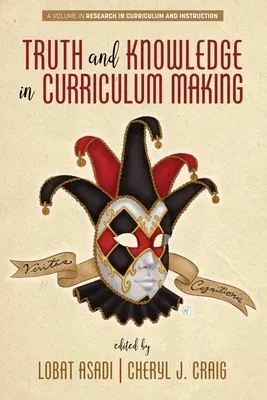Truth and Knowledge in Curriculum Making, addresses issues in
curriculum and instruction, such as the lack of Black teachers, minority
representation, and mentorship.
The book arose from a serial interpretation of five published narrative
inquiries that pinpointed complexities lived in a teacher knowledge
community at T.P. Yaeger Middle School, a campus located in the fourth
largest urban center in America. The inquiry initially resulted in a
documentary-style presentation at an educational conference using
performance narrative inquiry as an arts-based method to recount the
research. In Truth and Knowledge in Curriculum Making, the process of
researchers turned actors is unraveled by looking at the lived
experiences and identifying the embodied knowledge of teachers in
different content areas including Physical Education, Music, Teaching
English as a Second Language, Mathematics, and Reading. The authors use
parallel stories, counter stories, story constellations, musical
narrative inquiry, performance narrative inquiry and other narrative
means of sense-making as they examine how they may relate to those
stories. Ethical research dilemmas, including the how and why behind
each author's choice to burrow into difficult topics such as race,
gender and conflict resolution are revealed. By unpacking the hidden
curriculum, examining value creation and by revealing isolated
relational experiences of participants and researchers, Truth and
Knowledge in Curriculum Making instantiates and outlines how truth and
knowledge may be formed in educational settings through intertwining
narrative inquiry, teacher knowledge and aesthetic ways of knowing.


